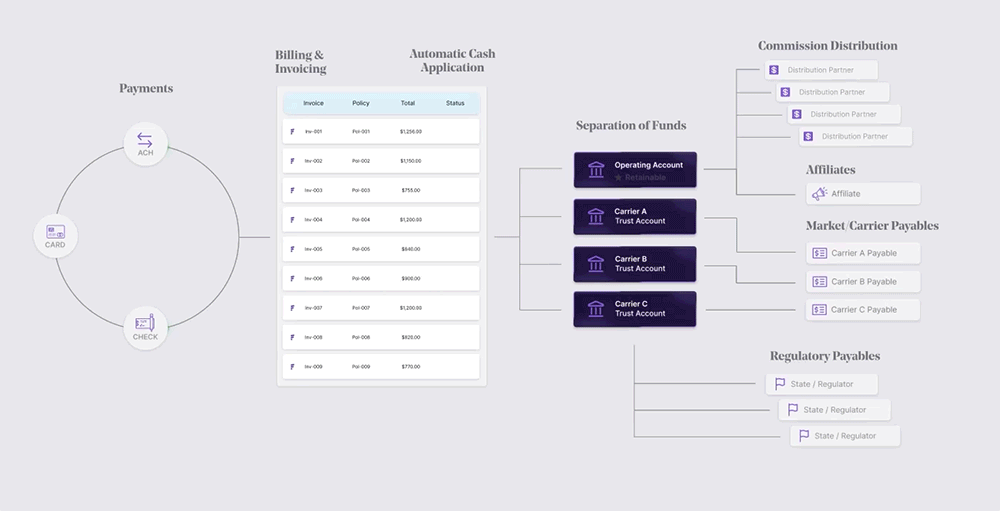Insurance is, at its core, a financial product. Customers hand you money upfront so it’s there to make them whole later. That’s not just customer service. It’s capital management. It’s trust. It’s stewardship of billions on behalf of others.
Which makes it all the more jarring that insurers still run financial operations like it’s the 1990s: spreadsheets, tribal knowledge, and manual reconciliations no one dares disturb.
We’ve seen this movie before. And we know how it ends.
You don’t need another lecture on inefficiency. You live it every day. Finance teams juggle cash flows across carriers, MGAs, wholesalers, and agencies with tools better suited for office admin than financial infrastructure.
Now, put the scale in perspective:
Meanwhile, banks manage $22 trillion in assets with decades of automation and oversight. Insurers, who are entrusted with oceans of customer money, still rely on duct tape systems and tribal knowledge.
Billing delays are routine. Premiums sit idle in accounts that don’t earn interest. Carrier remittances wait weeks for manual reconciliation. Commissions hide in files named “Commissions_FINAL(3).xlsx.”
If a fintech startup ran billions this way, it would be a scandal. In insurance, it’s just another Tuesday.
Underwriting strength can’t paper over broken finance operations. A 92% combined ratio means little if cash gets lost in the system.
You already feel it:
Billing isn’t back-office. It’s the wedge where trust is won or lost.

Imagine if your finance team could stop surviving spreadsheets and start steering growth. That means:
This isn’t “nice to have.” It’s what it means to run insurance like the financial product it is.
Sticking with duct tape doesn’t just cost efficiency. It puts your business at risk.
Inaction isn’t neutral. It’s a slow leak of trust, margin, and market share.
At Functional Finance, we built the platform to solve the ugliest, most undeniable wedge: billing. Today, MGAs and carriers use us to automate billing, payments, and reconciliation so they can stop playing whack-a-mole with spreadsheets and start operating like the financial institutions they already are.
Billing is distribution. Billing is customer experience. Billing is growth.
If you’re ready to stop running billions on CTRL+F and duct tape, let’s talk.
-Rush
Ready to replace tedious tasks with fast, accurate workflows? Book a free live demo of the #1 insurance financial operations platform today.